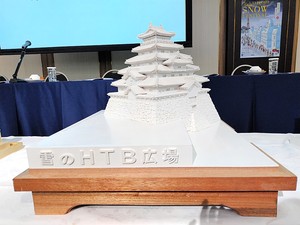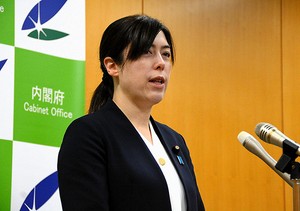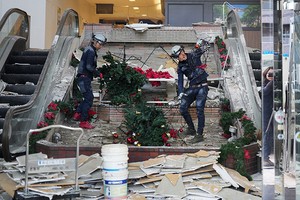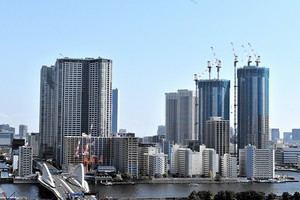THE ASAHI SHIMBUN
February 20, 2024 at 18:59 JST
Ishikawa Prefecture announced a plan on Feb. 19 to establish temporary accommodations for workers toiling away on reconstruction efforts in six hard-hit cities and towns by the Noto Peninsula earthquake, including Wajima and Suzu.
The workers have been commuting hours each day, sleeping in cars and facing other hardships due to accommodation shortages in the devastated Noto Peninsula.
They are trying to restore infrastructure, provide medical care and perform essential recovery services.
According to the prefecture, approximately 8,000 people are working to restore the affected areas every day.
However, there are few nearby accommodations available for these workers, and commuting from as far as Kanazawa has become a challenge to work efficiency.
According to interviews conducted by the central and prefectural governments, there are currently about 4,000 workers per day restoring roads, water supplies and other infrastructure, in addition to about 4,000 local government support workers, volunteers, medical workers, welfare staff and others.
The prefectural government has secured accommodations for approximately 1,200 restoration workers in six cities and towns by setting up campers, trailer houses and tents in available public facilities.
Others are sleeping in shelters, at town halls, or in their cars. They are also having difficulty securing water and washing clothes.
According to prefectural officials, they are “operating under harsh conditions.”
To address this, container houses and a temporary capsule hotel with a total of 82 rooms for 134 people will be built on a multipurpose site next to Noto Airport in Wajima.
The cost is estimated at approximately 400 million yen ($2.66 million). The hotel will begin operating for a fee within the next month and will be expanded gradually based on demand. A temporary restaurant area is also under consideration.
In addition, each of the six cities and towns will establish temporary lodging facilities for restoration workers.
The plan is for prefectural and municipal governments to secure the land and build the facilities, which will then be run by lodging businesses impacted by the disaster. These accommodations will be available for a fee.
The prefectural government is also considering establishing tent-like facilities north of Anamizu so that volunteers, who are currently commuting by bus from Kanazawa, can stay in the area for a short period of time.
Hotels and inns in the affected areas were severely damaged and the shortage of lodging facilities has been an issue since the onset of the Jan. 1 disaster.
Most of the workers and volunteers are still making day trips to and from the site, which can take three to five hours each way by car from Kanazawa in Ishikawa Prefecture or Takaoka in Toyama Prefecture.
According to the prefectural government, the trip between Kanazawa and Anamizu now takes about 2.5 hours one way, twice as long as it would under normal conditions.
If lodging could be secured north of Anamizu, travel time would be greatly reduced and work efficiency would improve.
However, there are challenges to doing so. Since there is little flat land in the Noto Peninsula, the first priority has been to construct temporary housing for displaced residents.
As of Feb. 16, construction had already begun on 2,347 temporary housing units, of which 58 have been completed. The prefecture is working at a rapid pace to start construction on 4,000 units by the end of March.
Approximately 7,400 applications for temporary housing have already been submitted, and the prefecture intends to increase the number of temporary housing while monitoring the occupancy of these units.
Even if a site could be found where an accommodation facility could be set up for earthquake recovery workers and supporters, that land would still need to be cleared of debris, and there are few volunteers and businesses available to help with the work.
“We are looking for places to set up temporary housing (for displaced residents)," Ishikawa Governor Hiroshi Hase said at a news conference on Feb. 19. "There are certain restrictions on places for supporters to stay. We want to build more and more temporary housing, but we also want to prepare accommodations for supporters.
"It is difficult to do both at the same time, but we would like to proceed while coordinating our efforts,” he said.
(This article was written by Yoshinori Doi and Itsuki Soeda.)




















A peek through the music industry’s curtain at the producers who harnessed social media to help their idols go global.
A series based on diplomatic documents declassified by Japan’s Foreign Ministry
Here is a collection of first-hand accounts by “hibakusha” atomic bomb survivors.
Cooking experts, chefs and others involved in the field of food introduce their special recipes intertwined with their paths in life.
A series about Japanese-Americans and their memories of World War II